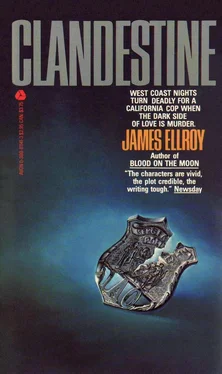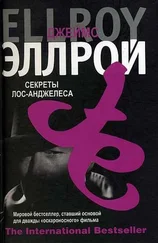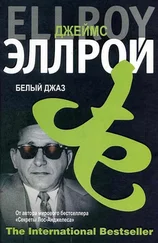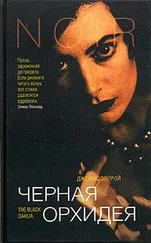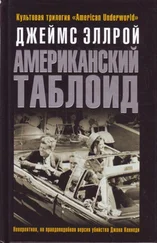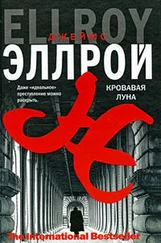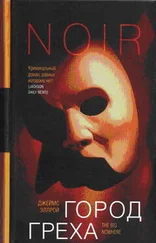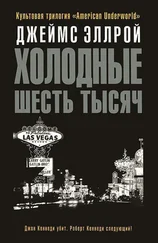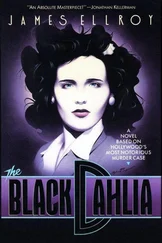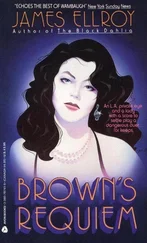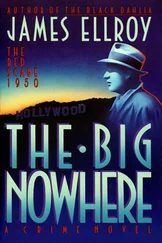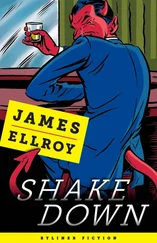One night in the summer of 1943 the lovers went walking on the beach near San Diego. Doc told Marcella that he was resettling in the Los Angeles area; that he had the “opportunity of a lifetime” there. His only regret, he said, was that they would have to part. Temporarily, of course — he would come down to Dago to visit. He wanted to be with her every spare moment; she was the only woman who had come close to touching the core of his heart.
Marcella, moved to the core of her heart, set about pulling strings to be with the man she loved. She was a consummate string-puller, and within two weeks she brought Doc the happy news: she was to be transferred to the naval hospital at Long Beach, a half hour’s drive from Los Angeles. Her brother Johnny, now a master pharmacist’s mate, was to be a hospital liaison there, procuring drugs and other hospital supplies from wholesalers in the Los Angeles area.
She beamed at Doc, who marveled aloud for several minutes at Marcella’s gifts of manipulation. Finally he took her hand. “Will you marry me?” he asked. Marcella said yes.
They honeymooned in San Francisco, and moved to a spacious apartment in the Los Feliz district of Los Angeles. Marcella, newly promoted to lieutenant commander, took over her duties at the naval hospital, as did Petty Officer John DeVries, who had rented an apartment near the newlyweds.
It went well for a while: the Allies had turned the tide, and it was now only a matter of time before Germany and Japan capitulated, Marcella was satisfied with her supervisory duties, and Johnny and Doc had become great friends.
Doc had become the father that Johnny had lost. The two would spin off together in Doc’s LaSalle convertible for long, aimless jaunts all over the L.A. basin. That was the trouble, Marcella decided. Doc was never around, and when he was he was deliberately mysterious and darkly elliptical.
It soon became obvious to her that her husband’s “opportunity of a lifetime” was the receiving of stolen goods from an L.A.-based robbery gang. Johnny, high on hop one night, had told her that Doc had garages filled with stolen merchandise all over the city. He fenced the contraband goods — furs, jewelry, and antiques — to army and navy high brass, hangers-on in the movie industry, and the gamblers and other assorted con artists who frequented Hollywood Park and Santa Anita racetracks.
Doc was a loving, solicitous husband when he was around, but Marcella started to worry. She began drinking to excess and corresponding voluminously with Will to assuage the fears that were building in her about the man she loved. He seemed to be laughing at her, thinking always two or even three steps ahead of her, and always, always smiling darkly with what she imagined to be an evil, absolutely cold light in his eyes.
Marcella decided she needed a vacation by herself. She needed to cut down her intake of alcohol and collect her thoughts. She told Doc this, and he readily agreed. She had a month’s accumulated leave time coming, and her superiors were more than willing to let their fiercely competent nurse take some time off to relax.
She drove to San Juan Capistrano and swam in the sea and wrote long letters to Will, who had — amazingly — resettled in Tunnel City. Astounded by this, Marcella telephoned him there. Will told her that he had found it necessary to confront his tragic past. He had become a seeker of the spiritual path. It worked, he told her; he was at peace here, running the town movie theater, going on book-buying missions to Chicago for the Tunnel City Public Library, and meditatively walking the cabbage fields he had once hated so terribly.
Marcella returned to Los Angeles to find she was pregnant and that Johnny was once again addicted to codeine. He had taken up with a young woman that Doc had considered unworthy and had decreed that he not see again. Cowed by his father-surrogate, Johnny had agreed, and the woman had left Los Angeles.
Marcella was angry at her husband’s hold over her brother, and hurt. She had exercised authority over Johnny much more benignly. Doc would coldly order Johnny about, tell him to drive him places, instruct him on what to wear and eat; and always, always with that cold smile on his face.
Marcella was troubled. But when she told Doc the news of her pregnancy, she was overjoyed to see the laughing, witty, and tender Doc of their courtship reemerge. He was solicitous, he was considerate, he anticipated her moods perfectly. She was never happier, she wrote to Will, not ever.
Michael was born in August of 1945, and Marcella’s letters to Will became less frequent. She never mentioned her new child and ignored Will’s written queries about him.
“Trouble, trouble,” she wrote Will in October of that year. “John and I are being questioned about a drug robbery on an aircraft carrier. We have been singled out because of Johnny’s addiction. It is a terrible, terrible thing.”
“Trouble, awful trouble from all quarters,” she wrote in November of ’45, three months after the end of the war. It was their last contact for almost six years.
Will and Johnny had run into each other in Chicago late in ’49. Johnny had looked terrible: emaciated, his skin a ghastly gray. Will had sought to comfort him, had told him about the “Order of the Clandestine Heart” to which he belonged. Johnny seemed interested, but became nervous when Will pushed the point.
John DeVries was murdered in Milwaukee in 1950. His killer was never found. When Will read of Johnny’s murder in the Milwaukee newspapers, he tried to contact Marcella. It was no use — he sent telegrams to her last known address only to have them returned stamped “Gone, No Forwarding Address.” He called every William Harris in the Los Angeles directories, to no avail. Finally, he drove to Milwaukee and talked to the two detectives assigned to investigate the killing.
Johnny had been found at dawn on the grass at a park a few blocks off Milwaukee’s skid row. He had been stabbed repeatedly with a butcher knife. He was a known morphine addict and sometime dealer. His death was obviously tied into the drug underworld. The detectives, Kraus and Lutz, were considerate and kind to Will, but closed-minded about broadening their investigation. Although they told Will they would keep him informed, he drove back to Tunnel City troubled and feeling powerless.
He was to see Marcella one last time. She knocked on his door in the summer of 1951. It was the most startling event of his life. Marcella had lost weight and was close to hysteria. They talked of John’s death and she sobbed in Will’s arms. Will told Marcella of the Clandestine Heart monastery, and she seemed to listen and gain brief solace.
Marcella drank herself to sleep that night, passing out on Will’s living room sofa. When Will awoke early the next morning she was gone. She had left a note: “Thank you. I will consider what you have said. I will seek what I have to seek. I envy your peace. I will try to gain what peace I can.”
Will Berglund anticipated my one question: “I’ll call those policemen in Milwaukee. I’ll tell them you’re coming.”
I nodded at the farmer-lover-spiritual seeker. He seemed to take my brief turn of the head as absolution, and a slow trickle of tears ran from his eyes.
It was 5:00 A.M. I walked back to the Badger Hotel. My room had been gone through — magazines had been turned over and the bed had been tousled. I checked the contents of my suitcase. Everything was there, but my gun had been unloaded. I packed and walked downstairs and through the lobby, getting curious and hostile looks from some early-rising townspeople. I walked down Main Street feeling awed and humbled — and also powerful; I had been handed the wonder on a platter, and now it was up to me to put it in order.
Читать дальше
